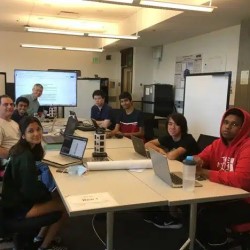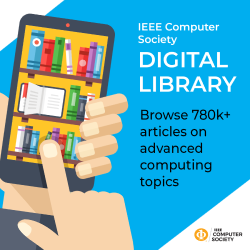Software Engineering Professional Practice
Improve your professionalism with these tips and tricks.
Software engineering professional practice refers to the knowledge, skills, and responsibilities that software engineers must possess in order to practice software engineering competently, ethically and responsibly. As software becomes increasingly central to modern life, the standards for professional practice continue to rise. Software engineers have an obligation to deliver software development that is safe, secure, and meets end-user needs. They must adhere to ethical codes of conduct, follow best practices from computer science and software engineering, and stay current on standards and legal/regulatory issues. Key elements of professional practice include accreditation, licensing, adherence to standards, sound project documentation, consideration of economic/social impact, and effective communication skills. This article will explore the facets of professionalism vital for successful software engineering practice and related careers like computer engineering, data science and programming.
Professionalism is about more than technical competency. Software engineers have an ethical duty to consider the broader implications of their work on society and the environment. They should proactively assess sustainability, inclusion and potential bias in systems. A long-term perspective balances speed to market with appropriateness of solutions. Engineers accept accountability not just for initial quality but for downstream maintenance and evolution of a software system. Software developers should display curiosity and intellectual humility when reviewing any software application design. With software’s complexity, unknowns are inevitable – professionalism entails probing those unknowns for risks. Professionalism also means showing determination in the face of obstacles, both technical and organizational. Internal drive and resilience enable engineers to persist on difficult programming problems when solutions are not straightforward.
Read more about professionalism for software engineers in the Software Engineer Book of Knowledge (SWEBOK)
How should a software engineer show professionalism?
A software engineer demonstrates professionalism by upholding ethical standards, completing thorough documentation, and following best practices and standards endorsed by professional associations. Adhering to a professional code of ethics is a core responsibility, as is staying up-to-date on accepted norms. Treasuring the safety of the public should be paramount. Software engineers exhibit professionalism by taking pride in their work, engaging in continuous learning, and being transparent about risks or limitations related to their products. They avoid falsifying information or concealing mistakes. Professionalism requires awareness of the societal impact of software engineering decisions. Overall, professionalism entails accountability, integrity and social responsibility.
Engineers should demonstrate professionalism in their attire, speech, and conduct when interacting with colleagues, clients, and the public. Their appearance and bearing should evoke competence, trustworthiness, and expertise. Timeliness, preparation, and active engagement in discussions exhibit respect for others’ time. Providing deliverables that meet or exceed expectations shows commitment to quality assurance. Software engineers should be mindful that their public persona reflects on their field. Upholding morals and ethics even in difficult situations maintains the honor of the profession.
What is accreditation important?
Accreditation is the certification that an educational program like the software engineering program meets established quality standards. It validates that a program has the faculty, curriculum, resources and oversight needed to adequately prepare students. Accredited programs must satisfy criteria related to outcomes, continuous improvement, facilities, financial sustainability and integrity. For software engineering, graduation from an accredited program is widely recognized as necessary preparation for professional practice. Accreditation gives employers confidence that graduates possess the foundation to perform competently and safely. It promotes mobility for engineers seeking jobs worldwide. Accreditation protects students from substandard programs and helps the field progress by disseminating quality benchmarks.
The accreditation process examines factors like program leadership, faculty qualifications, labs, equipment, facilities, institutional support and financial resources. Site visits verify that standards are met. Accrediting bodies have committees of volunteer professionals who develop criteria and conduct evaluations. Accreditation must be renewed periodically with a full self-study and site visit. It assures that graduates have the scientific and technical skill needed to enter practice. Accredited programs produce skilled graduates who can excel in critical engineering roles.
Are certifications and licenses important?
Professional certification and licensing validate specialized expertise and the legal right to practice software engineering, respectively. Certifications, such as those offered by IEEE, demonstrate proficiency in aspects of software engineering like requirements analysis, design principles, testing and project management. Certification exams objectively measure comprehension of best practices from software engineering courses, allowing companies to identify candidates with proven capabilities. Licensure laws, where they exist, aim to prevent unqualified individuals from providing software engineering services. Licenses document legal permission to perform software engineering work, granted by governmental authorities. While voluntary, certifications and licenses bolster professional credibility for software engineers. They indicate commitment to high standards and continuing education in information technology.
Earning professional software engineering certifications requires passing proctored exams testing knowledge and skills. Software engineer certification, for instance, must be renewed through retesting or professional development. They validate expertise beyond a formal software engineering degree. Many certifications have experience prerequisites. Licensing entails meeting legal standards for public protection. Engineers receive a license from a government agency allowing work. Requirements include education, exams, experience and good character. Licenses must be renewed periodically. Though software licenses are less common than other engineering fields, they demonstrate software engineering qualifications and can lead to higher software engineer salaries.
Why is documentation so important?
Thorough documentation is crucial for software engineering practice. Design documents, requirements specifications, user manuals and other technical communications ensure stakeholder needs are met. They capture critical details that support quality, safety and maintainability. Documentation provides an audit trail showing adherence to standards and wise handling of tradeoffs. Code documentation makes software more extensible and helps onboard new engineers. User documentation fosters proper operating system and data security. By facilitating hand offs between teams, documentation promotes continuity on long projects. Its clarity enables collaboration and knowledge transfer. Standardized templates and tools improve consistency.
Complete and accurate documentation is essential for preserving institutional knowledge and avoiding critical omissions. It records vital historical context, design rationale, and operational information that would otherwise be lost. Clear documentation allows new engineers to rapidly come up to speed on a codebase. It helps identify obsolete sections needing rewrite. Consistent documentation makes onboarding efficient and improves maintainability. Documentation should be kept updated as changes occur. Well-documented interfaces enable loose coupling. Code samples show usage and help engineers self-educate. Checklists remind engineers of steps. Documentation is a professional responsibility.
Read more about professionalism for software engineers in the Software Engineer Book of Knowledge (SWEBOK)
Why are group dynamics important for a software engineering professional?
Most software engineering work involves collaboration, so understanding group dynamics is essential. Teams must balance diverse personalities, skill sets, and work styles. Psychological safety enables engineers to take smart risks without fear of blame. Cohesion and trust maximize team productivity. Leveraging diversity fosters innovation. Good dynamics empower teams to align on priorities, meet commitments, and deliver quality solutions. Poor dynamics lead to friction, disengagement, and failure. Software leaders must foster inclusion and openness to unite teams toward shared objectives.
How can team members contribute to a good group dynamic?
Team members contribute to healthy dynamics via honesty, accountability and empathy. They share information proactively, own mistakes, and avoid finger-pointing. Members should give skillful feedback focused on solutions. They help integrate new hires and give credit freely. Flexibility and curiosity expand perspective. Patience and focus facilitate progress on difficult problems. Members should calibrate their communication style to the audience. They resolve conflicts constructively and celebrate shared wins. Promoting a culture of psychological safety and knowledge sharing sustains positive engagement across the team. Overall, both technical skill and emotional intelligence are required from members to foster a cohesive, trusting and productive group dynamic.
Every team member must take personal responsibility for cultivating good group dynamics. Modeling openness, respect and positivity sets the tone. Adopting a growth mindset embraces failures as learning opportunities. Keeping commitments builds trust. Sharing recognition for team achievements unifies the group. Taking time to listen attentively before replying shows care. Offering help freely to teammates lightens individual burdens. Members should avoid gossip and instead address issues constructively. Maximizing information flow accelerates learning. Overall, excellence in group dynamics requires conscientious nurturing by each individual for the collective benefit of all.
How should you approach interacting with stakeholders?
Productive stakeholder interactions begin with listening intently to understand needs before proposing solutions. Engineers should frame questions skillfully to draw out hidden requirements and insights. They maintain professionalism always, even when pressed or frustrated. Setting agreed upon mechanisms for giving feedback fosters openness on both sides. Following through reliably on commitments preserves trust. Simple, tailored language conveys technical issues accessibly. Engineers must balance stakeholder requests, business goals, and technical constraints, surfacing tradeoffs for group decision. Maintaining stakeholder alignment throughout a project via regular touchpoints is ideal. Overall, interacting with empathy, clarity and accountability satisfies stakeholders while enabling engineering success.
Effective stakeholder interactions require preparing thoroughly, asking probing questions, actively listening, clearly communicating, and setting realistic expectations. Engineers should partner with stakeholders as collaborators, not treat them as adversaries. Regular status updates through preferred contact channels sustain engagement. Demonstrating prototypes early elicits feedback to prevent misalignment. Plain language explanations describe technical concepts simply. A solutions focus identifies paths forward from setbacks. Honoring commitments builds enduring trust. Following up promptly on open items shows reliability. Overall, proactive communication and consultative partnership with stakeholders drives project success.
How should you handle equity, diversity, and inclusivity?
Software leaders should champion diversity, equity and inclusion through hiring practices, team policies, and personal example. Thoughtfully implementing blind resume reviews and structured interviews counters unconscious bias. Mentorship programs support underrepresented groups. Setting team norms of respectful debate creates psychological safety. Seeking input from all team members ensures an equitable group voice that represents all perspectives. Managers should aim to match opportunities to abilities, not preconceptions. Gender-neutral language in documentation also promotes inclusivity. It is also critical that leaders confront discriminatory behavior directly. Pay equity, and removing ambiguity from salary assessments is also key. Cultivating an equitable and inclusive culture draws in a richness of perspective. Welcoming talent from all backgrounds has been shown to advance innovation, often resulting in better end products.
Fostering inclusivity requires awareness of inherent biases and conscious effort to be open-minded. Software leaders should advocate for diversity goals within their organizations. Hiring panels should represent diverse groups to minimize insular thinking. Formal mentoring connects junior engineers to senior role models with shared experiences. Contribution opportunities and promotions should be purely merit-based. Required diversity training builds empathy. Anti-harassment policies must be enforced uniformly at all levels. Building an inclusive culture means welcoming all personalities and work styles equally. Community outreach introduces students of all backgrounds to careers in technology. Overall, equity, diversity and inclusion should be integral to an organization’s values.
Why should a software engineer have good communication skills?
Software engineers must communicate effectively to elicit, clarify and validate requirements from stakeholders. They confer with managers, users and teammates to make critical project decisions. Their designs, code and other technical work must be communicated persuasively to gain buy-in during reviews. Progress reports and status updates inform management of key project events. User documentation educates people on proper software usage. Presentations explain proposals and demonstrate solutions. In summary, communication is essential for coordinating software projects, ensuring stakeholder alignment, conveying complex information, providing training, and exchanging knowledge – all vital for software engineering practice.
Communication skills allow software engineers to clearly convey thoughts, collaborate smoothly, explain complex topics simply, actively listen, and provide constructive feedback. Strong written skills ensure specifications are precise. Verbal skills facilitate requirements gathering and collaboration. Presentation abilities enable persuasive explanations to leadership. Listening and questioning skills elicit implicit knowledge. Productive debate of alternative approaches requires tact. Communication unifies teams on priorities and processes. It fosters psychological safety for discussion of issues. In essence, communication is the medium through which most software engineering activities occur.
Why is it important for engineers to understand technical material?
Comprehending technical documentation is indispensable for software engineers. They must absorb intricate information from manuals, research papers, and source code to complete tasks properly. Technical reading informs system design choices and reveals coding techniques. Software engineers continually expand their career path by studying new languages, tools, methods and best practices. Moreover, they must grasp standards and legislation relevant to their work. The ability to read technical material, extract key ideas, and summarize findings are core engineering aptitudes. They enable awareness of precedents to build upon and pitfalls to avoid. Strong technical reading skills empower sound software engineering judgments.
Technical documentation provides essential details software engineers apply in their work – APIs, protocols, algorithms, configurations, etc. Code documentation reveals rationale and usage. Research papers highlight innovations to adopt. Standards outline mandatory procedures. Training manuals demonstrate new tools. Technical reading identifies security risks, anti-patterns to avoid, and integration challenges. It inspires new solution approaches. Software engineers must dedicate ongoing time to technical reading for continuing education. Strong comprehension skills let them rapidly distill key facts from dense technical material to make informed decisions.
Why is effective team communication so important?
Because software engineering is collaborative, effective team communication is critical. Complex projects require frequent coordination and information sharing between interdependent roles. Miscommunication can lead to costly rework and schedule overruns. Team discussions enable consensus on designs and plans. Code reviews foster collective ownership and learning. Teams must clarify goals, responsibilities, schedules and processes. Geographically distributed teams face heightened communication challenges necessitating greater structure. Communication tools like issue trackers and chat applications help teams collaborate efficiently. Overall, clear and professional team communication enables cohesive, productive software engineering efforts.
Team communication fosters unified vision, accountability, and rapid problem resolution. Daily standups align groups on priorities. Retrospectives surface improvement ideas from all members. Code reviews share technical insights broadly. Teams debate alternatives to reach optimal solutions. Communication difficulties get raised promptly for correction. Gate reviews ensure alignment across teams. Tools like Slack, JIRA and wikis centralize knowledge. Respectful, candid discussion of issues avoids simmering conflict. Cultural awareness prevents misinterpretation. Listening actively builds trust and psychological safety. In summary, frequent, open team communication enables dynamic coordination on complex systems development.
Should software developers have good presentation skills?
Some developers do not consider good presentation skills as an essential skill to possess. However, presentation skills are an indispensable competency for software engineers. Engineers are often responsible for delivering briefings throughout a project, but particularly at project inception when clearly articulating vision and value is crucial. Presentations are often the best way to summarize proposals and research conclusions. Visual aids like diagrams and charts are used to illustrate software architecture and operational flows. Slide decks can be used to spotlight risks that need mitigation. Software demonstrations showcase new features and gather user feedback. Simply put, high quality presentations keep stakeholders engaged and informed.
Effectively explaining complex technical concepts through presentations really is vital for software engineers. Persuasive delivery convinces stakeholders of proposed approaches. Impactful visuals clarify relationships. Succinct slides focus attention. Storytelling techniques build engagement. Presentations justify resource needs. Demonstrations prove capabilities. Confident body language inspires confidence in expertise. Audience rapport created through eye contact, voice modulation and humor gets buy-in. Answering questions skillfully provides clarity. Strong public speaking abilities also build influence and leadership skills within an organization.
Presentation skills enable software engineers to mobilize resources, sell ideas, educate users, spotlight risks and showcase solutions. It should be very clear that developing strong presentation skills is a wise investment for any aspiring software engineer.
Conclusion
Software engineering professional practice encompasses a wide range of knowledge, capabilities and behaviors. Technical expertise alone is insufficient. Software developers must exhibit accountability, integrity, and sound judgment in their work. A commitment to safety and ethics is paramount. Communication, teamwork and business skills enable effective coordination and stakeholder service. Mental adaptability helps solve novel problems. Practicing responsibly also requires awareness of standards, legal issues, and societal impact. Diligent documentation provides transparency. Licenses and certifications validate capabilities and drive continual growth. With technology’s integral role, maintaining high professional standards enables software engineering’s ongoing advancement.
Read more about professionalism for software engineers in the Software Engineer Book of Knowledge (SWEBOK)






